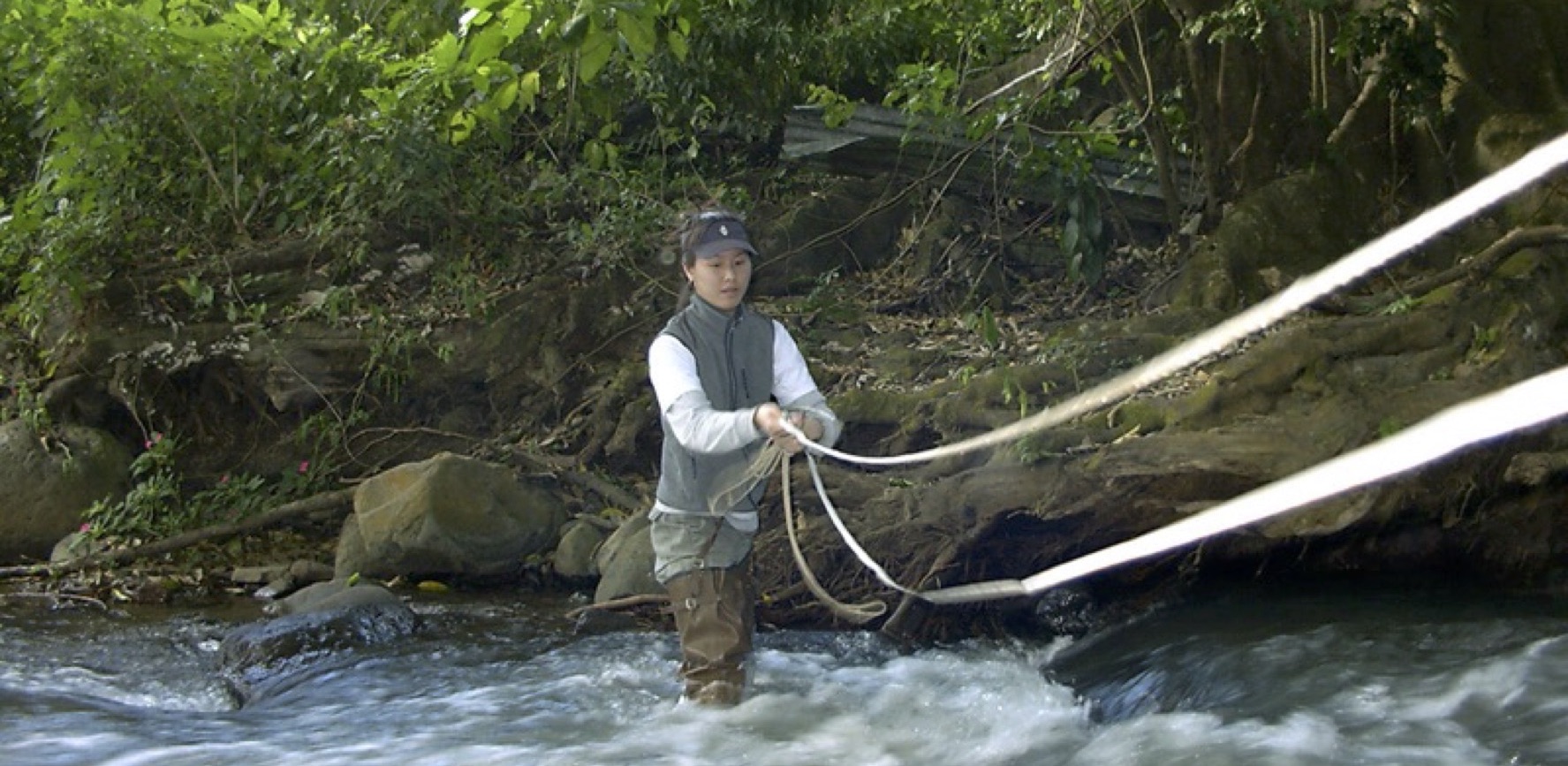- Instructor: Michelle Joffroy
- Instructor: L'Tanya Richmond
Smith College's Moodle
Search results: 316
A few quick notes to ground our time together.
Contact Information: kdesuze@smith.edu
Mobile: 347-596-0828
Class is schedule for Tuesdays and Thursdays at 10:30am and Wednesdays at 3:40pm. Office hours are available by appointment only. My intention is to start class from a grounded space so, I will not accept appointments before class.
In lieu of pre class meetings, please feel free to email me with your concerns. If it's urgent, please indicate so in the subject line.
We will follow the Smith College School of Social Work Calendar. If there are any changes, I will do my best to post an announcement with sufficient times to adjust.
All required readings are outlined on the syllabus. While completing all the readings for all your courses may be difficult, please aspire to complete all assigned readings. We will abide by the proposed plan however; I ask for flexibility as we move throughout the course.
Finally, the semester moves really quickly so, let's support one another in being organized, present, and accountable to the process.
Please contact me if you have any questions.
kqd.
- Instructor: Kalima DeSuze

This self-directed course helps the Smith College community—faculty, students, and staff—understand artificial intelligence. You will learn core AI concepts, develop critical thinking for AI-generated information, and explore practical, ethical ways to use AI tools in your work and learning.
- Instructor: Travis Grandy
- Instructor: Alex Seggerman
- Instructor: Christen Mucher
- Instructor: Daphne Lamothe
- Instructor: Brent Durbin
- Instructor: Rosetta Cohen
- Instructor: Rosetta Cohen
- Instructor: Christen Mucher
- Instructor: Christen Mucher
- Instructor: Rosetta Cohen
- Instructor: Lane Hall-Witt
- Instructor: Lane Hall-Witt
- Instructor: Christen Mucher
- Instructor: Rosetta Cohen
- Instructor: Christen Mucher
- Instructor: Rosetta Cohen
- Instructor: Rosetta Cohen
- Instructor: Lane Hall-Witt
- Instructor: Christen Mucher
- Instructor: Brent Durbin
- Instructor: Lane Hall-Witt
- Instructor: Lane Hall-Witt
- Instructor: Christen Mucher
- Instructor: Christen Mucher
- Instructor: Lane Hall-Witt
- Instructor: Christen Mucher
- Instructor: Lane Hall-Witt
This course is an introduction to major themes in social and cultural anthropology. We will examine the concepts, methods, and theories anthropologists employ to understand the unity and diversity of human experiences across different regional contexts, with an emphasis on social, cultural, political, and economic systems of inequality.
Perhaps you are taking this course because you are interested in becoming an anthropology major. Perhaps you are considering pursuing a career in anthropological research. If this is your situation, this course is a great place to start. But for many others – maybe even a majority of you – this might be the first or only anthropology course you will take at Smith – though I hope you will be inspired to take more! By the end of this course, you will learn what it means to “think anthropologically” in ways that I hope can serve you in any career path you choose and in your everyday life, at Smith and beyond.
To “think anthropologically” is much more than a specialized course of study; it is a way of observing and understanding the diverse practices, ideas, and sentiments through which human beings build their daily lives in an ever-changing world. Thinking anthropologically is a mode of asking critical questions about what human beings share in common and what makes us distinct from each other. Thinking anthropologically means learning to pay attention to conditions, perspectives, and structures of inequality that are often taken for granted or invisible. It gives us a conceptual tool-box for analyzing deeply complex topics like culture, race, and gender in more critical and nuanced ways.
The cornerstone of anthropological research is ethnographic fieldwork, which is a qualitative method based on long-term participatory observation among particular groups of people in specific places. Such an immersive, fine-grained approach to research allows anthropologists to analyze how ordinary people experience the pressing challenges of our time, from issues of racism to histories of colonialism, to forced displacement, to climate change, to economic crisis.
Thinking anthropologically also means critically engaging with the discipline’s origins and the fraught histories of colonialism, racism, and inequality in which anthropology — like all modern academic disciplines — is embedded. In the first few weeks of the semester, we will trace anthropology’s intellectual roots in 19th- and early 20th-century debates in Europe and North America about evolution and the “scientific” study of human diversity. We will then consider how anthropological research has critically evolved in relation to this history. Throughout the course, we will ask: What texts and topics are considered the “classics” of anthropology, and what does this exclude? What aspects of the classic anthropological enterprise of documenting cultural differences should be retained, and what should be abandoned or rethought? And what does it mean to “decolonize” anthropology today?
- Instructor: China Sajadian
Welcome to Ant 221- Method, Theory & Practice. Here is the link for the course website.
- Instructor: Elizabeth Klarich

What is the archaeology of food?
This course explores how archaeologists study past foodways—from adaptive and social perspectives—and also asks students to consider the complex relationships between past, present and future food systems. This is a highly interdisciplinary field of study that integrates data sets from environmental science, botany, zoology, human anatomy, and geochemistry, among others. It is also a field that addresses a diversity of economic, political, and social issues from an explicitly anthropological perspective. In other words, what can we understand about past human behavior and lifeways by analyzing charred plant remains, abandoned cooking areas, old pottery, and ancient trash dumps? To address these questions, the course is divided into three units: (1) an overview of the archaeology of food, focusing on both methods and theory; (2) a case study on maize, examining its domestication and spread; and (3) a collaborative exploration of global plant histories, highlighting the Smith College collections.
- Instructor: Elizabeth Klarich
Course website: https://sites.smith.edu/ant237-sp24/
- Instructor: Elizabeth Klarich
- Instructor: Fernando Armstrong-Fumero
- Instructor: Barry Moser
- Instructor: Sarah Mazza

BIO 130 - Biodiversity, Ecology, and Conservation
Important links:
- BIO130 - Fall 2025 Syllabus
- Poll everywhere
- Extension request form
Instructor:
|
Name |
Nadia Fernandez |
|
Pronouns |
she/her |
|
|
nfernandez29@smith.edu |
|
Contact |
Email or in-person |
|
Student Hours |
Wednesdays - 1:00 - 2:30pm in Sabin-Reed 236 Thursdays - 9:30 - 11:00am in Sabin-Reed 236 Drop-in or book a time slot in the Appointments Calendar |
·
- Instructor: Nadia Fernandez

Important links:
- BIO354 - Spring 2026 Syllabus
- Extension request form
Instructor:
|
Name |
Nadia Fernandez |
|
Pronouns |
she/her |
|
|
nfernandez29@smith.edu |
|
Contact |
Email or in-person |
|
Student Hours |
Drop-in or book a time slot in the Appointments Calendar |
·
- Instructor: Nadia Fernandez
- Instructor: Zoya Alam
- Instructor: Yohana Beyene
- Instructor: Kristine Chin
- Instructor: Alexandra Eleazar
- Instructor: Marisol Fernandez yMora
- Instructor: Elizabeth Haas
- Instructor: Benita Jackson
- Instructor: Leigh Johnston
- Instructor: Jeannie Lee
- Instructor: Precious Musa
- Instructor: Romina Pacheco
- Instructor: Chrisshara Robinson
- Instructor: Ariadne Speliotis
- Instructor: Benita Jackson
- Instructor: Phil Peake
Welcome to the CEEDS Summer Internship!
- Becca Malloy, Assistant Director of Sustainability, Wright Hall 007, office (413) 585-3538 OR cell (413) 336-3678
- Molly Neu '25
- Jena Kim '27
Major goals for our work this summer:
Develop communications materials for new and returning students about starting the school year sustainably and the new SmithCycle Thrift
Develop multimedia training materials for new EcoRep skill development program
Draw out key messages from previous Smith student research to track and communicate students’ impacts on Smith’s sustainability
Sort and clean move-out donations (dorm decor, linens, and school supplies) and organize and display items in preparation for SmithCycle Thrift to launch in August
Support the branding and communications of CEEDS’ Sustainable Events Guide
Other sustainability projects which may include greenhouse gas tracking, program development, mapping, communications, data management or programming
- Instructor: Becca Malloy

Instructor and Office hours
陳雅琳 Yalin Chen ylchen@smith.edu
Office hours: T & Th 1:30-2:30 pm (sign up here to avoid wait time), and by appointment
Office hour Zoom meeting link: https://smith.zoom.us/my/yalinchen
Chen laoshi will hold office hours on Zoom, but can also meet in person with advance notice.
- Instructor: Yalin Chen
- Instructor: Abril Navarro
- Instructor: Christian Hamann
- Instructor: Kevin Shea
- Instructor: Nuru Stracey
- Instructor: Cristina Suarez
- Instructor: Christian Hamann
- Instructor: Rebecca Thomas
Online Otrganization Leader Training needs to be completed BEFORE the Fall Student Leader Meeting on Monday, September 11, 2023 at 7 pm in the Carroll Room.
Organizations wishing to enroll other members of their organization should send their request to tbates@smith.edu.
- Instructor: Tamra Bates
- Instructor: Emma Bunnell
- Instructor: Florian Block
- Instructor: Dominique Thiebaut
- Instructor: Chris Aiken
- Instructor: Angie Hauser
- Instructor: Chris Aiken
- Instructor: Angie Hauser
- Instructor: Keerthana Akella
- Instructor: Basira Daqiq
- Instructor: Mia Delpriora
- Instructor: Susannah Howe
- Instructor: Mike Kinsinger
- Instructor: Sylvie Pryor
- Instructor: Aaron Rubin
RECURRING MEETING LINK https://smith.zoom.us/j/91621966155
- Instructor: Joanna Aguilar
- Instructor: Jaylene Castro-Contreras
- Instructor: Maddie Davis
- Instructor: Susannah Howe
- Instructor: Aaron Rubin
- Instructor: Sarah Uddin

- Instructor: Jessica Moyer
EDC 311 Rethinking Equity and Teaching for English Learners
Students who speak languages other than English are a growing presence in U.S. schools. These students need assistance in learning academic content in English as well as in developing proficiency in English. This course is designed to provide an understanding of the instructional needs and challenges of students who are learning English in the United States. This course explores a variety of theories, issues, procedures, methods and approaches for use in English as a second language, bilingual, and other learning environments. It also provides an overview of the historic and current trends and social issues affecting the education of English Learners. Enrollment limited to 35. Priority given to students either enrolled in or planning to enroll in the student teaching program. Through this course, participants will gain
knowledge and skills to effectively instruct multilingual learners K-12. Successful
completion of the course qualifies an educator for the SEI (Sheltered English
Instruction) endorsement required for teacher licensure or re-licensure in
Massachusetts. Credits: 4 Renata Pienkawa
Normally offered each spring- Instructor: Renata Pienkawa
Welcome! This course supports the Pre-Practicum experience for students pursuing Initial Licensure.
The course meets weekly on Monday afternoons.
| Credits: 1 | Max Enrollment: 0 |
| Course Type: Laboratory | Section Enrollment: 11 |
| Grade Mode: Credit/Non Credit | Waitlist Count: 0 |
| Reserved Seats: No | |
| Coreq: EDC 345D - Elementary Curric & Methods | |
| Time/Location: Monday | 3:05 PM - 4:20 PM / Seelye 105 | Instructional Method: In-Person |
This lab accompanies the elementary student teaching internship course EDC 345D. The focus of the lab will be the examination of student teaching dilemmas for discussion and reflection. Student teachers will be introduced to key topics germane to their internship while examining the student teaching experience. The course will bring together content knowledge, professional dispositions/caring, instructional methods, assessment strategies, collaboration, diversity, classroom management, and technology. In this lab, student teachers will also reflect on teaching and their plans for future learning, and work on building the portfolio of teaching required for state licensure. Only open to students in Smith's teacher education program. Corequisite: EDC 345D. S/U only. (E) | |
- Instructor: Lynn Dole
- Instructor: Hannah Lord
- Instructor: Kris Dorsey
- Instructor: Sarah Fay
- Instructor: Sarah Fay
- Instructor: Sarah Fay
ENG 125-04 Course Description
This course enables students to hone skills in writing creatively within the genres of nonfiction, poetry, and fiction. Over the semester, you’ll acquire essential tools for telling your stories — for choosing effective “form(s)” and language for the ideas, visions and emotions you wish to communicate. Students will draft, workshop, and revise three pieces of writing over the course of the semester, one each in the genres of creative nonfiction, poetry, and fiction.
Class learning includes participation in “workshop” sessions in which student work is read aloud and critiqued in a group setting. There will also be in-class writing exercises and discussions about process and revision. Students will be assigned to breakout groups for small group discussion during the week [all groups listed in the ENG 125-04 S’24 Shared Google Drive and will have particular responsibility for providing in- depth peer evaluations of the drafts of the other students in their breakout group at specified moments in the term. All students will also be expected to supply comments on shorter pieces-in-process posted on ENG 125-04 S'24 Word-Press by all the students in the course.
Assigned readings on craft will introduce, exemplify and enhance your understanding of particular aspects of craft and technique within the three genres of our focus. And because all serious writers learn the most important writerly lessons from masterful examples, we’ll also examine each genre through a variety of readings exemplifying practice within each genre.
- Instructor: Naomi Miller
- Instructor: Camille Washington-Ottombre
Applied Sports Medicine ESS 280 Spring 2024
Foundations of Injury Prevention and Treatment
Instructor: Dr Lori Hittner-Engel (She/Her/Hers)
Credit Hours: 4
Class Hours: Tuesday/Thursday 1:20pm—2:35 Ainsworth classroom
Office: Phone Email: lengel@smith.edu
Office Hours: by appointment available on Zoom or in person at HPL
Course Description:
In this course, students will review musculoskeletal anatomy, etiology of common sports injuries, injury prevention, concussion management and learn how to train individuals involved in sport to maintain health and performance. Students will be introduced to different assessment tools, treatment interventions, sports nutrition, sports psychology, and research methods. Students will apply new knowledge and research a common sports injury to be presented to peers at the end of the semester.
In this course student will:
1. Develop an understanding of the anatomy and etiology of common sports injuries.
2. Understand strategies for injury prevention and treatment
3. Gain understanding of role of nutrition on sports performance
4. Understand Concussion management
5. Develop an understanding of commonly used assessment tools
6. Utilize appropriate treatment and training interventions
7. Identify primary source literature to develop a research paper
8. Interpret and translate research findings and design a sports injury presentation
Required Materials:
Introduction to Sports Medicine and Athletic Training, by Robert C. France (3rd edition) ,Cengage, USA. IBSN:978-0-357-37916-5. e-copy will be provided on Moodle.
- Instructor: Lori Engel
- Instructor: Susanne Bennett
- Instructor: Joanne Corbin
Gender, Sex, and Sexuality in Russian Culture
Ruth Averbach
Pierce Hall, Room 104
Course Description
In June 2013, President Vladimir Putin signed into law a ban on ‘propaganda’ that advocates for non-traditional sexual relationships, homosexuality, and transgenderism. Despite this, Russia has at times in its history been a bastion of gender and sexual diversity. Nevertheless, Russia’s queer and trans heritage is often neglected in scholarly and popular conceptions of the country. Students in this course examine Russia’s queer and trans history through literature, visual arts, and music. Topics include the history of “homosexuality” and “heterosexuality,” the medical history of transsexuality, gay and lesbian subjectivities, trans autobiography and fiction, and the ethics of queer scholarship.
Course Objectives
This seminar is designed to achieve several goals. First, this course develops students’ critical thinking and writing skills. Students will learn how to outline, draft, and revise papers, effectively summarize literary texts, analyze specific themes in a work, contextualize artistic works in a proper cultural and historical context, understand and respond to critical works, and construct a short research paper with a coherent thesis and clear line of argumentation. Second, students will gain a broad overview of Queer and Trans Russian history and culture and engage with understudied source materials, perspectives and experiences concerning gender, sex, and sexuality.
Course Requirements
Assignments
Weekly reading responses (appx. 250 words)
First Paper: Summary of a Literary Text (3 pages)
Second Paper: Thematic Analysis (5 pages)
Third Paper: Research and Argumentation (7 pages)
Draft paper due one week before final version
Students will read and respond to a classmate’s paper within a week of turning in final drafts
Revisions will be turned in a week after receiving their peer review and instructor feedback
Due dates for all assignments are listed in the reading schedule
Grading Rubric
Attendance and Participation – 20%
Reading Responses – 20%
First Paper – 15%
Second Paper – 15%
Third Paper Presentation – 10%
Third Paper – 20%
Course Expectations
It is essential for students to complete assigned readings, attend course meetings, and contribute to class discussions. Feel welcome to use electronic devices, but do not let them distract others or yourself from the lesson. Please let Ruth know as soon as possible if you are ill or must miss class for any reason.
Academic Integrity
Students are expected to uphold all Smith College policies on academic integrity. AI is only acceptable for proofreading for grammar, punctuation, and spelling. All outside sources used in written assignments must be cited properly.
Accommodations
If you need any accommodations to participate in and complete the course, please contact the Accessibility Resource Center (College Hall 104; arc@smith.edu; 413-585-2071) and let Ruth know how she can best serve your needs.
COURSE READING SCHEDULE
Week II: Sexuality and Russian Civilization
M: (De)legalize Gay
Igor Kon, The Sexual Revolution in Russia (11-38)
Foucault, “The Birth of Homosexuality” from The History of Sexuality, vol. II
Olearius, The Travels of Olearius in 17th Century Russia
W: Is Gender, Sex, and Sexuality Universal?
Xenia the Servant of God, or Andrei Fyodorovich the Holy Fool
Benjamin, excerpts from The Transsexual Phenomenon
Mayhew, “Holy Foolishness and Gender Transgression in Russian Hagiography” (optional)
Week III: Is Homosexuality a Psychological Complex?
M: The Endless Anxieties of Nikolai Gogol
Gogol, “The Nose”
Gogol, “Ivan Fyodorovich Shponka and His Aunt”
Freud, excerpts of “Certain Neurotic Mechanisms in Jealousy, Paranoia, and Homosexuality”
Freud, letter to father of a homosexual boy
W: H-o-t t-o Gogol: Gay Iconography
Gogol, The Overcoat
Gogol, “Nevsky Prospect”
Gogol, “Woman”
First Paper Draft Due Sunday
Week IV: Aleksandr Aleksandrov: Russia’s First Transsexual Writer
M: Conceptualizing Transsexual Autobiography
Aleksandrov, The Cavalry Maiden, Chapters I-VI
Zirin, “Introduction” to English translation of The Cavalry Maiden
W: The Unmaking of a Man
Aleksandrov, The Cavalry Maiden, Chapters VII-XIII
First Paper Due Sunday
Week V: Aleksandrov’s Fiction
M: Trans Men and Misogyny
Aleksandrov, Nurmeka
Zazanis, “On Hating Men (and Becoming One Anyway)”
W: Colonialism and the Transsexual Empire
Aleksandrov, Nurmeka
Puar, excerpts from Terrorist Assemblages (optional, Ruth will summarize)
First Paper Peer Review Notes Due
Week VI: Between Sex and Sexuality
M: Compulsory Heterosexuality
Gan, “The Ideal”
Rich, “Compulsory Heterosexuality and Lesbian Existence”
W: Compulsory Homosexuality
Pomialovsky, Seminary Sketches
First Paper Revisions Due Sunday
Week VII: Becoming ‘Gay’
M: Homosexual or Gay?
Kuzmin, selected poems
Kuzmin, Wings
Somov, selected paintings
W: Is Sexuality an Identity or a Behavior?
Kuzmin, Wings (finish)
Rozanov, excerpts from “People of the Moonlight”
Week VIII: Becoming ‘Gay’ (Cont’d); Lesbianism and Gender Expression
M: Lesbian Gender and Sexuality
Zinovieva-Annibal, The Tragic Menagerie
W: Lesbian Gender and Sexuality (cont’d)
Zinovieva-Annibal, The Tragic Menagerie (continue)
Second Paper Draft Due
Week IX: Lesbianism and Gender Expression (Cont’d)
M: What is the Difference Between Lesbians and (Trans) Men?
Zinovieva-Annibal, The Tragic Menagerie (finish)
Shrier, excerpts from Irreversible Damage
Wittig, excerpts from The Straight Mind (optional, Ruth will summarize)
W: Sapphic Verse
Gippius, selected poems
Parnok, selected poems
Tsvetaeva, selected poems
Sappho, selected poems
Second Paper Due
Week X: Pre-Revolutionary and Revolutionary Sexuality
M: Is Male Heterosexuality Gay?
Gorky, “26 Men and a Girl”
Mulvey, excerpts from Visual Pleasure
W: Is Homosexuality Communist?
Trifonov, selected poems
Kharitonov, “One Boy’s Story” and “Alyosha-Serezha”
Harry Whyte, letter to Stalin
Second Paper Peer Review Notes Due
Week XI: Transsexuality, Soviet Style
M: Transsexuality and Medicine
Gill-Peterson, excerpts from Histories of the Transgender Child
Benjamin, The Transsexual Phenomenon
Blanchard, excerpts from articles on transsexual etiology
Kalnberz, excerpts from My Time
W: Is Gender a Social Duty?
Hammer & Sickle (1994)
Bogdan Popa, Decentering Queer Theory
Second Paper Revisions Due
Week XII: Late and Post-Soviet Sexuality
M: Late Soviet Sexuality
Past, “No Offense in Love”
Rybikov, “The Lay of the Gay Slavs”
Fiks, selected poems and photographs
W: Post-Soviet Tolerance and Intolerance in Popular Culture
t.A.t.U, 200km/h in the Wrong Lane
Strykalo, “vse resheno”
2013 Anti-Gay Propaganda bill
Selections of recent American anti-gay and trans bills
Third Paper Outlines Due
Week XIII: Trans Art in an Age of Reaction
M: Between Homosexuality and Transsexuality
Outlaw (2019)
W: Being Trans When Being Trans is Illegal
Letter, A City Flower
Selections, What Is a Woman?
Dugin, selections from The Fourth Political Theory and interview with Tucker Carlson
Third Paper Drafts Due Sunday
Week XIV: Conclusion and Presentations
M: Student Presentations
Students will present their final projects in progress in a conference format
W: Conclusion
Student presentations will continue
Concluding lecture
Third Papers Due (one week after final date)
- Instructor: Ruth Averbach
- Instructor: Jonathan Caris
- Instructor: Mark Brandriss
Smith College’s Graduate and Special Programs enhance and broaden the liberal arts
curriculum with a commitment to research, scholarship and professional development,
while preparing a diverse student body to be innovative and responsible leaders in their
fields.
The Associate Dean of the Faculty serves as Director of Graduate and Special
Programs and works closely with the Graduate and Special Programs Operations
Coordinator.
There are seven Smith College Graduate & Special Programs:
Master Degrees:
Master of Science in Biological Sciences (MS in BIO)
Master of Fine Arts in Dance (MFA)
Master of Science in Exercise and Sport Studies (MS in ESS)
Master of Fine Arts in Playwriting (MFA, sunsetting in 2027)
Master of Arts in Teaching (MAT)
Non-Degree Programs:
Interdisciplinary Studies Diploma Program
Mathematics Post-Baccalaureate Program
- Instructor: Justin Cammy
- Instructor: Martha Potyrala
- Instructor: Darcy Buerkle
- Instructor: Jennifer Hall-Witt
- Instructor: Darcy Buerkle
- Instructor: Jennifer Guglielmo
- Instructor: Miriam Neptune
- Instructor: Elizabeth Pryor
- Instructor: Nanci Young
- Instructor: Floyd Cheung

This is a self-guided course to learn the basics of the learning management system used at Smith College: Moodle. Below the screenshot you should see an option for self-enrollment, which will add you to the course as a student. Select the 'Enroll me' button and let's get started! If you have any trouble self-enrolling or do not see the button to enroll, you can email Abril at dnavarro@smith.edu.


This course is the second half of a two-semester sequence introducing Modern Hebrew language and culture, with a focus on equal development of the four language skills: reading, writing, speaking, and listening. By the end of the year, students will be able to comprehend short and adapted literary and journalistic texts, describe themselves and their environment, and express their thoughts and opinions. Learning will be amplified by use of online resources (YouTube, Slack, tutorials, etc) and examples from Hebrew song and television/film.
The in-class portion of the course will be heavily based on active listening and speaking practice; you can expect to spend the vast majority of class time speaking with and listening to your classmates.
May only be taken S/U with approval of the instructor and the director of Jewish Studies.
The JUD 101-102 sequence is required for Smith students wishing to study abroad in Israel.
- Instructor: Joanna Caravita
This course is the second half of a two-semester sequence introducing Modern Hebrew language and culture, with a focus on equal development of the four language skills: reading, writing, speaking, and listening. By the end of the year, students will be able to comprehend short and adapted literary and journalistic texts, describe themselves and their environment, and express their thoughts and opinions. Learning will be amplified by use of online resources (YouTube, Slack, tutorials, etc) and examples from Hebrew song and television/film. This course is available to Mount Holyoke students though a simultaneous video-conferencing option.
The in-class portion of the course will be heavily based on active listening and speaking practice; you can expect to spend the vast majority of class time speaking with and listening to your classmates.
May only be taken S/U with approval of the instructor and the director of Jewish Studies.
The JUD 101-102 sequence is required for Smith students wishing to study abroad in Israel.
- Instructor: Joanna Caravita
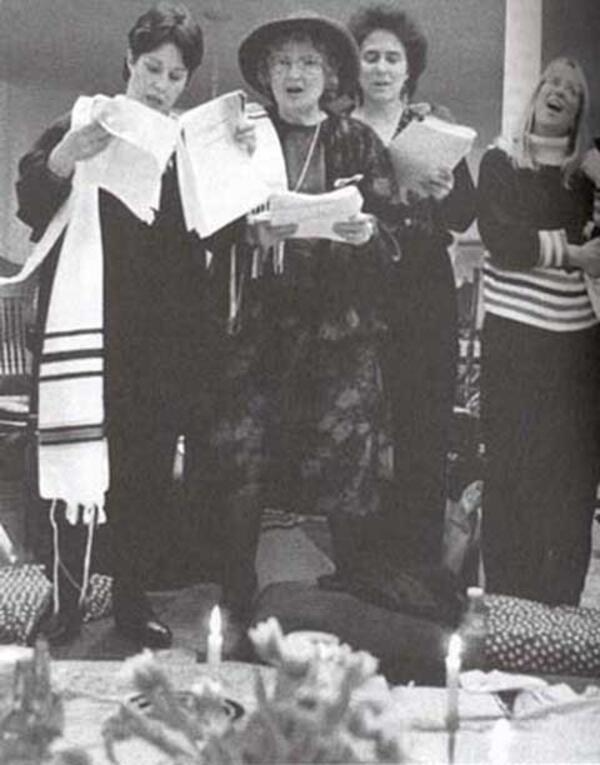
How did the feminist movement impact Judaism and Jewish self-identity, and how and why did Jews play a formative role at key moments in feminist history? Discussions include feminist midrash, ritual innovation and contested issues such as divorce, women's religious leadership and LGBTQ Jews in religious law and practice. Experiential learning is emphasized through lectures from guest speakers, work in the Smith archives which houses the papers of several groundbreaking American (Jewish) feminists and visits to local sites. A prior course in Jewish Studies is helpful, but not required.
- Instructor: Sari Fein

Learning Goals:
- To introduce students to Latin America through the study of key cultural, political, environmental, economic and social issues.
- To familiarize students with the histories and geography of Latin America, the Caribbean, and Latino/a communities in the United States.
- To develop awareness of global and hemispheric interdependencies and connections across borders of politics, culture, economics, ecologies, ideas and power.
- To cultivate an awareness and appreciation of the diversity of perspectives in fields and disciplines engaged in the study of Latin America, the Caribbean and the Latino/a U.S.
- To introduce students to Latin American and Latino/a Studies faculty at Smith through their areas of teaching and research.
- Instructor: Verónica Dávila Ellis (they/them)
- Instructor: Dana Leibsohn
- Instructor: Reid Bertone-Johnson
- Instructor: Reid Bertone-Johnson
- Instructor: Reid Bertone-Johnson
About this course
What you'll learn
- Explore some of the important theoretical foundations, empirical findings, research methods, and applications of political psychology
- Apply psychological theories to understand people’s motivations for becoming politically active
- Analyze primary source materials and learn why archival preservation is critical for the visibility of women's stories
- Instructor: Tammy Lockett
- Instructor: Ileana Vasu
(African Popular Music)
Smith College
Spring 2021
Instructor: Bode Omojola, PhD.
(Five College Professor)
Time: 10:15 am ET-12:10 pm ET
Venue: Remote
Office Hours: 12:15 pm ET-1:15 pm ET
Course Description
This course focuses on twentieth-century African popular music. It examines musical genres from different parts of the continent, investigating their relationships to the historical, political, and social dynamics of their respective national and regional origins. Musical idioms like highlife, soukous, kwaito, afrobeat, hiplife, and afrobeats will be studied to assess the significance of popular music as a creative response to social and political developments in colonial and postcolonial Africa. The course also discusses the growth of hip-hop music in selected countries by exploring how indigenous cultural tropes have provided the basis for its local adaptation. The themes explored in this class also include music and identity; music, politics, and resistance; cosmopolitanism, neo-traditional forms, appropriation, and the politics of musical nostalgia.
- Instructor: Olabode Omojola
Course No: MUS 220
Instructor: Bode Omojola, Ph.D.
Meeting Venue: Sage Hall 215
Time: TuTh: 10:30-11:50am
Office Hours: TuTh: 12-1pm (Room TBD)
E-mail: bomojola@smith.edu or: bomojola@mtholyoke.edu
Course Description
This course concentrates on the lives and music of selected West African musicians. Departing from ethnographic approaches that mask the identity of individual musicians and treat African societies as collectives, this course emphasizes the contributions of individual West African musicians whose stature as master musicians is undisputed within their respective communities. It examines the contributions of individual musicians and ensembles to the ever continuous process of negotiating the boundaries and ambience of African musical practice. Individuals and groups covered this semester include Angélique Kidjo (Benin), Fela Anikulapo-Kuti and Babatunde Olatunji (Nigeria), and Dzigbordi women (Ghana). The variety of artistic expressions of selected musicians also provides a basis for examining the interrelatedness of different African musical idioms, and the receptivity of African music to non-African styles.
- Instructor: Olabode Omojola
With this course, students will explore composing for and performing with laptop orchestra, focusing on topics such as sound synthesis, software-based digital instrument design, live audio processing, and gain practical skills in group composing, concert performance, and computer music programming.
Students will be challenged to design and implement their own laptop-mediated musical instruments, interpret graphic and text based scores, program sounds, and perform as a group. Regular in-class rehearsals and performances will culminate in a final concert showcasing the ensemble's work. This course is ideal for students interested in exploring music technology, group improvisation, and studying historical and contemporary approaches to musical composition and performance.
- Instructor: Kelley Sheehan
- Instructor: Jonathan Hirsh
- Instructor: Amanda Huntleigh
- Instructor: Ensembles Manager
- Instructor: Reka Peterson
- Instructor: Sarah Paquet
- Instructor: Sarah Paquet
- Instructor: Jonathan Hirsh
- Instructor: Amanda Huntleigh
- Instructor: Ensembles Manager
- Instructor: Reka Peterson
- Instructor: Jonathan Hirsh
- Instructor: Amanda Huntleigh
- Instructor: Ensembles Manager
- Instructor: Amanda Huntleigh
- Instructor: Ensembles Manager
- Instructor: Reka Peterson
- Instructor: Paige Graham
- Instructor: Jonathan Hirsh
- Instructor: Ensembles Manager
- Instructor: Sarah Paquet
- Instructor: Jonathan Hirsh
- Instructor: Claire Kenny
- Instructor: Robin Livingston
- Instructor: Ensembles Manager
- Instructor: Sarah Paquet
- Instructor: Maya Sposito
- Instructor: Jessica Yoder
- Instructor: Jonathan Hirsh
- Instructor: Ensembles Manager
- Instructor: Sarah Paquet
- Instructor: Jonathan Hirsh
- Instructor: Amanda Huntleigh
- Instructor: Maya Sposito
- Instructor: Ezra Curtis
- Instructor: Lemuel Gurtowsky
- Instructor: Jonathan Hirsh
- Instructor: Robin Livingston
- Instructor: Ensembles Manager
- Instructor: Sarah Paquet
- Instructor: Jessica Yoder
- Instructor: Jonathan Hirsh
- Instructor: Ensembles Manager
- Instructor: Sarah Paquet
- Instructor: Jonathan Hirsh
- Instructor: Amanda Huntleigh
- Instructor: Ensembles Manager
- Instructor: Reka Peterson
- Instructor: Jonathan Hirsh
- Instructor: Amanda Huntleigh
- Instructor: Ensembles Manager
- Instructor: Reka Peterson
- Instructor: Amanda Huntleigh
- Instructor: Ensembles Manager
- Instructor: Reka Peterson
- Instructor: Hannah Grasso
- Instructor: Lemuel Gurtowsky
- Instructor: Jonathan Hirsh
- Instructor: Gwen Jones
- Instructor: Robin Livingston
- Instructor: Ensembles Manager
- Instructor: Maria Mutka
- Instructor: Sarah Paquet
- Instructor: Haruka Yoshida
- Instructor: Paige Graham
- Instructor: Jonathan Hirsh
- Instructor: Ensembles Manager
- Instructor: Sophia Pichanick
- Instructor: Chloé Chauvot de Beauchêne
- Instructor: Sam Hill
- Instructor: Jonathan Hirsh
- Instructor: Hanif Lawrence
- Instructor: Ensembles Manager
- Instructor: Isabella Purnell-Amáez
- Instructor: Paige Graham
- Instructor: Jonathan Hirsh
- Instructor: Ensembles Manager
- Instructor: Maeve Tyler-Penny
- Instructor: Abigail Akers
- Instructor: Lemuel Gurtowsky
- Instructor: Jonathan Hirsh
- Instructor: Hanif Lawrence
- Instructor: Ensembles Manager
- Instructor: Abigail Akers
- Instructor: Lemuel Gurtowsky
- Instructor: Jonathan Hirsh
- Instructor: Hanif Lawrence
- Instructor: Ensembles Manager
- Instructor: Rouen Nelson

- Instructor: Abigail Akers
- Instructor: Gabriela Eastwood
- Instructor: Lemuel Gurtowsky
- Instructor: Jonathan Hirsh
- Instructor: Abby Kaufman
- Instructor: Hanif Lawrence
- Instructor: Ensembles Manager
- Instructor: Rouen Nelson
- Instructor: Gabby Borromeo
- Instructor: Hillary Dunkley
- Instructor: Paige Graham
- Instructor: Jonathan Hirsh
- Instructor: Ensembles Manager
- Instructor: Sophia Pichanick
- Instructor: Fern Poling
- Instructor: Paige Graham
- Instructor: Jonathan Hirsh
- Instructor: Hanif Lawrence
- Instructor: Ensembles Manager
- Instructor: Maeve Tyler-Penny
- Instructor: Gabby Borromeo
- Instructor: Paige Graham
- Instructor: Jonathan Hirsh
- Instructor: Ensembles Manager
- Instructor: Gilbert Wermeling
- Instructor: Paige Graham
- Instructor: Jonathan Hirsh
- Instructor: Ensembles Manager
- Instructor: Jonathan Hirsh
- Instructor: Amanda Huntleigh
- Instructor: Jonathan Hirsh
- Instructor: Ensembles Manager
- Instructor: Sarah Paquet
- Instructor: Ezra Curtis
- Instructor: Jonathan Hirsh
- Instructor: Robin Livingston
- Instructor: Ensembles Manager
- Instructor: Sarah Paquet
- Instructor: Jessica Yoder
- Instructor: Jonathan Hirsh
- Instructor: Amanda Huntleigh
- Instructor: Ensembles Manager
- Instructor: Reka Peterson
- Instructor: Hannah Grasso
- Instructor: Lemuel Gurtowsky
- Instructor: Jonathan Hirsh
- Instructor: Ensembles Manager
- Instructor: Maria Mutka
- Instructor: Sarah Paquet
- Instructor: Paige Graham
- Instructor: Jonathan Hirsh
- Instructor: Ensembles Manager
- Instructor: Sarah Paquet
- Instructor: Jonathan Hirsh
- Instructor: Ensembles Manager
- Instructor: Sarah Paquet
- Instructor: Jonathan Hirsh
- Instructor: Amanda Huntleigh
- Instructor: Ensembles Manager
- Instructor: Reka Peterson
- Instructor: Jonathan Hirsh
- Instructor: Amanda Huntleigh
- Instructor: Ensembles Manager
- Instructor: Reka Peterson
- Instructor: Jonathan Hirsh
- Instructor: Ensembles Manager
- Instructor: Sarah Paquet
- Instructor: Maya Sposito
- Instructor: Jessica Yoder
- Instructor: Abigail Akers
- Instructor: Lemuel Gurtowsky
- Instructor: Jonathan Hirsh
- Instructor: Hanif Lawrence
- Instructor: Ensembles Manager
- Instructor: Paige Graham
- Instructor: Jonathan Hirsh
- Instructor: Ensembles Manager
- Instructor: Abigail Akers
- Instructor: Lemuel Gurtowsky
- Instructor: Jonathan Hirsh
- Instructor: Hanif Lawrence
- Instructor: Ensembles Manager
- Instructor: Rouen Nelson
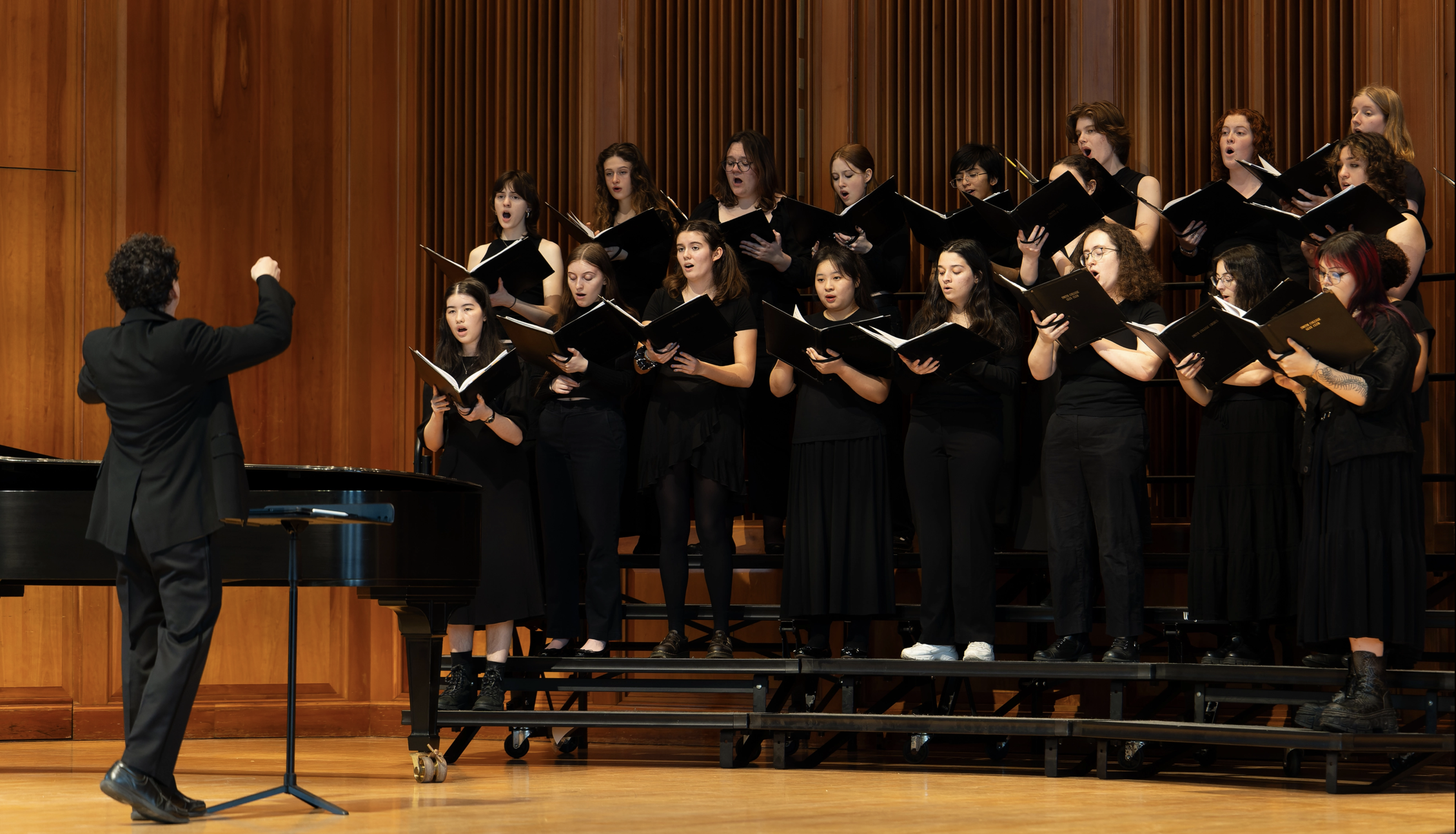
- Instructor: Abigail Akers
- Instructor: Gabriela Eastwood
- Instructor: Lemuel Gurtowsky
- Instructor: Jonathan Hirsh
- Instructor: Abby Kaufman
- Instructor: Hanif Lawrence
- Instructor: Ensembles Manager
- Instructor: Rouen Nelson
- Instructor: Chloé Chauvot de Beauchêne
- Instructor: Sam Hill
- Instructor: Jonathan Hirsh
- Instructor: Hanif Lawrence
- Instructor: Ensembles Manager
- Instructor: Isabella Purnell-Amáez
- Instructor: Paige Graham
- Instructor: Jonathan Hirsh
- Instructor: Ensembles Manager
- Instructor: Maeve Tyler-Penny
- Instructor: Paige Graham
- Instructor: Jonathan Hirsh
- Instructor: Ensembles Manager
- Instructor: Gabby Borromeo
- Instructor: Paige Graham
- Instructor: Jonathan Hirsh
- Instructor: Ensembles Manager
- Instructor: Sophia Pichanick
- Instructor: Fern Poling
- Instructor: Paige Graham
- Instructor: Jonathan Hirsh
- Instructor: Ensembles Manager
- Instructor: Maeve Tyler-Penny
- Instructor: Gabby Borromeo
- Instructor: Paige Graham
- Instructor: Jonathan Hirsh
- Instructor: Ensembles Manager
- Instructor: Gilbert Wermeling
- Instructor: Jonathan Hirsh
- Instructor: Ensembles Manager
- Instructor: Reka Peterson
- Instructor: Pleia Hall
- Instructor: Jonathan Hirsh
- Instructor: Ensembles Manager
- Instructor: Jonathan Hirsh
- Instructor: Ensembles Manager
- Instructor: Pleia Hall
- Instructor: Jonathan Hirsh
- Instructor: Ensembles Manager
- Instructor: Jonathan Hirsh
- Instructor: Reka Peterson
- Instructor: Joel Pitchon
- Instructor: Jonathan Hirsh
- Instructor: Ensembles Manager
- Instructor: Bailey Streeter
- Instructor: Olivia Brady
- Instructor: Aviva Green
- Instructor: Jonathan Hirsh
- Instructor: Ensembles Manager
- Instructor: Sarah Paquet
- Instructor: Bailey Streeter
- Instructor: Olivia Brady
- Instructor: Aviva Green
- Instructor: Jonathan Hirsh
- Instructor: Ensembles Manager
- Instructor: Taegan Mullane
- Instructor: Jonathan Hirsh
- Instructor: Ensembles Manager
- Instructor: Reka Peterson
- Instructor: Jonathan Hirsh
- Instructor: Ensembles Manager
- Instructor: Gabby Borromeo
- Instructor: Pleia Hall
- Instructor: Jonathan Hirsh
- Instructor: Ensembles Manager
- Instructor: Jo-Lee Nelson
- Instructor: Bailey Streeter
- Instructor: Jonathan Hirsh
- Instructor: Ensembles Manager
- Instructor: orchlib orchlib
- Instructor: Hillary Dunkley
- Instructor: Pleia Hall
- Instructor: Jonathan Hirsh
- Instructor: Ensembles Manager
- Instructor: Jo-Lee Nelson
- Instructor: orchlib orchlib
- Instructor: Fern Poling
- Instructor: Bailey Streeter
- Instructor: Jonathan Hirsh
- Instructor: Ensembles Manager
- Instructor: Jo-Lee Nelson
- Instructor: orchlib orchlib
- Instructor: Bailey Streeter
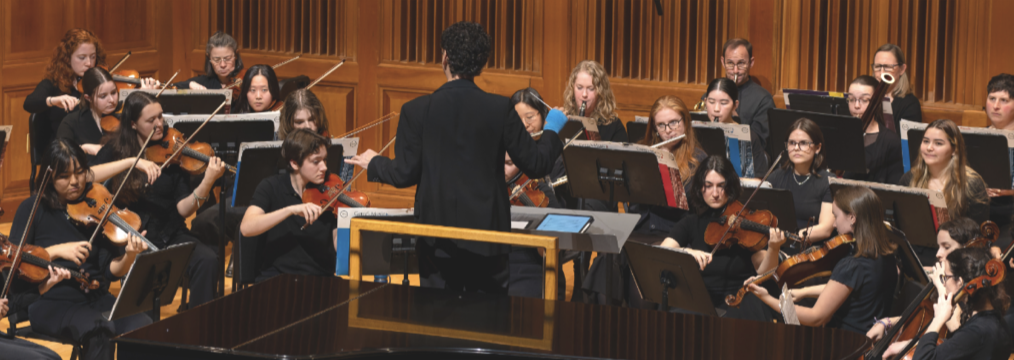
- Instructor: Abigail Akers
- Instructor: Gabriela Eastwood
- Instructor: Jonathan Hirsh
- Instructor: Abby Kaufman
- Instructor: Ensembles Manager
- Instructor: Rouen Nelson
- Instructor: Jonathan Hirsh
- Instructor: Ensembles Manager
- Instructor: Jo-Lee Nelson
- Instructor: orchlib orchlib
- Instructor: Bailey Streeter
- Instructor: Jonathan Hirsh
- Instructor: Ensembles Manager
- Instructor: orchlib orchlib
- Instructor: Jonathan Hirsh
- Instructor: Ensembles Manager
- Instructor: Jonathan Hirsh
- Instructor: Ensembles Manager
- Instructor: orchlib orchlib
- Instructor: Maho Ishiguro
- Instructor: Maho Ishiguro
- Instructor: Maho Ishiguro
- Instructor: Maho Ishiguro
- Instructor: Maho Ishiguro
- Instructor: Maho Ishiguro
- Instructor: Maho Ishiguro
- Instructor: Maho Ishiguro
- Instructor: Margaret Sarkissian
- Instructor: Maho Ishiguro
- Instructor: Phil Acimovic
- Instructor: Phil Acimovic
- Instructor: Phil Acimovic
- Instructor: Margaret Sarkissian
- Instructor: Phil Acimovic
- Instructor: Phil Acimovic
- Instructor: Phil Acimovic
- Instructor: Phil Acimovic
- Instructor: Phil Acimovic
- Instructor: Phil Acimovic
- Instructor: Phil Acimovic
- Instructor: Genevieve Rose
- Instructor: Genevieve Rose
- Instructor: Genevieve Rose
- Instructor: Genevieve Rose
- Instructor: Genevieve Rose
- Instructor: Genevieve Rose
- Instructor: Genevieve Rose
- Instructor: Genevieve Rose
- Instructor: Genevieve Rose
- Instructor: Genevieve Rose
- Instructor: Genevieve Rose
- Instructor: Genevieve Rose
- Instructor: Genevieve Rose
- Instructor: Genevieve Rose
- Instructor: Genevieve Rose
- Instructor: Genevieve Rose
- Instructor: Genevieve Rose
- Instructor: Genevieve Rose
- Instructor: Genevieve Rose
- Instructor: Ellen Redman
- Instructor: Ellen Redman
- Instructor: Hannah Berube
- Instructor: Hannah Berube
- Instructor: Ellen Redman
- Instructor: Ellen Redman
- Instructor: Hannah Berube
- Instructor: Hannah Berube
- Instructor: Ellen Redman
- Instructor: Ellen Redman
- Instructor: Thomas Bergeron
- Instructor: Meghan MacFadden
- Instructor: Meghan MacFadden
- Instructor: Meghan MacFadden
- Instructor: Meghan MacFadden
- Instructor: Meghan MacFadden
- Instructor: Meghan MacFadden
- Instructor: Hannah Berube
- Instructor: Meghan MacFadden
- Instructor: Meghan MacFadden
- Instructor: Ellen Redman
- Instructor: Ellen Redman
- Instructor: Ellen Redman
- Instructor: Ellen Redman
- Instructor: Ellen Redman
- Instructor: Ellen Redman
- Instructor: Ellen Redman
- Instructor: Ellen Redman
- Instructor: Ellen Redman
- Instructor: Ellen Redman
- Instructor: Ellen Redman
- Instructor: Ellen Redman
- Instructor: Ellen Redman
- Instructor: Ellen Redman
- Instructor: Ellen Redman
- Instructor: Ellen Redman
- Instructor: Ellen Redman
- Instructor: Ellen Redman
- Instructor: Ellen Redman
- Instructor: Ellen Redman
Instructor: Mikaela Laine, PhD
Email: mlaine@smith.edu
Class hours: M and W 9:25 – 10:40am
Class location: Bass 203
Office hours: Tues 1:30-3:00pm, W 12:00-1:30pm
Office location: Sabin-Reed 424 (+ Zoom)
- Instructor: Mikaela Laine
- Instructor: Christiane Metral
- Instructor: Hélène Visentin

How are works of art like and unlike other objects in the worlds that humans inhabit and make, like and unlike other human projects? What capacities are called upon in the creation and understanding of such works? Assignments will involve extensive use of the resources of the Smith College Museum of Art.
- Instructor: Malcolm Keating
Phil 233_01: Aesthetics and the Philosophy of Art
Fall 2025
Instructor: Angela Curran (pronouns: she/her)
Office: Wright 222
Office Hours: In person, in Wright 222, Tuesday and Thursday, 11:30-1 pm and other times by appointment.
email: acurran24@smith.edu
Course Meeting Times: Tu and Th 9:25-10:40 am
Course Room: Hatfield 106
Course Syllabus: Aesthetics and the Philosophy of Art
“The experience of art is a manifestation of human freedom, enabling individuals to express their uniqueness and engage with the world in meaningful ways, ” Hannah Arendt
“The function of art [experience] has always been to break through the crust of conventionalized and routine consciousness.” John Dewey
The central goal of the course is to introduce you to some of the puzzles and problems that philosophers have considered when they think about art. After going through the course, you will have learned a new way to think about art. You will also learn about philosophical thinking and see how examining art can teach us more about the nature of philosophy.
We investigate several central questions in aesthetics and the philosophy of art:
1). The Definition of Art: can art be defined? Could anything, including a pile of bricks, be art?
2) The Experience of Art: What is the nature of our experience of art? Is there something unique or valuable about our experience of art that sets it apart from our experience of everyday experiences?
3) Is intention relevant for interpreting a work of art?
4). How can we feel genuine emotions towards fiction when we know the characters are not real?
4) Are art and morality independent?
We will use many examples of artworks of various kinds (paintings, film, literature, music, and so on) as we discuss the ideas in the readings. You are also encouraged to bring in examples of artworks you would like to discuss about the readings. In addition, we will make use of the Smith College Museum of art throughout the semester.
You do not need to have taken philosophy to enjoy and do well in this class. But you do need to commit to learning the tools of philosophy, which we will introduce the first few weeks of the class, especially logical reasoning and evaluating arguments.
- Instructor: Angela Curran

- Instructor: Randi Garcia
- Instructor: MJ Wraga
- Instructor: MJ Wraga
Russian II
Ruth Averbach
Pierce Hall, Room 104
Course Description
The first half of a two-semester sequence. Students practice all four language modalities: reading, listening, writing and speaking. The course incorporates a variety of activities that are based on a range of topics, text types and different socio-cultural situations. Authentic texts (poems, short stories, TV programs, films, songs and articles) are used to create the context for reviewing and expanding on grammar, syntax and vocabulary. Prerequisite: RES 100Y or equivalent.
Grading Rubric
Attendance and Participation – 35%
Assignments – 35%
Quizzes – 10%
Exams – 20%
Course Expectations
It is essential for students to complete assigned readings, attend course meetings, and contribute to class discussions. Feel welcome to use electronic devices, but do not let them distract others or yourself from the lesson. Please let Ruth know as soon as possible if you are ill or must miss class for any reason.
Academic Integrity
Students are expected to uphold all Smith College policies on academic integrity. AI is only acceptable for proofreading for grammar, punctuation, and spelling. All outside sources used in written assignments must be cited properly.
Accommodations
If you need any accommodations to participate in and complete the course, please contact the Accessibility Resource Center (College Hall 104; arc@smith.edu; 413-585-2071) and let Ruth know how she can best serve your needs.
Course Schedule
Week II
M – Chapter I, Part I
HW due: practice vocab on p. 2-4, read texts on p. 7, 11
In class: Reading practice, questions to texts
W – Chapter I
HW due: #5, p. 8-9
In class: Grammar review
F – Chapter I
HW due: write short composition on family
In class: NO CLASS, RUTH AT CONFERENCE;
Week III
M – Chapter I
In class: present compositions, ask classmates questions
W – Chapter I
HW due: exercises 11 & 12, p. 12-13
In class: Accusative and Dative case practice
F – Chapter I
HW due: exercise 17, p. 16-17
In class: discussion, grammar review, poetry
Week IV
M – Chapter I, Part II
HW due: Practice vocabulary, p. 18-19
In class: short vocab quiz, relative clause
W – Chapter I, Part II
HW due: 10 sentences with который
In class: exercises 23-25, p. 22-24; оба\обе
F – Chapter I, Part II
HW due: exercise 27, p. 25
In class: dating profiles p. 27; Russian music
- Instructor: Ruth Averbach
- Instructor: Nick Baker
- Instructor: Liz Bannish
- Instructor: Alfred Lee Burns
- Instructor: Alexis Callender
- Instructor: MARK CETILIA
- Instructor: Elisa Kim
- Instructor: Justin Kim
- Instructor: Lucretia Knapp
- Instructor: Elizabeth Meyersohn
- Instructor: Barry Moser
- Instructor: Katherine Schneider
- Instructor: Michael Smoot
- Instructor: Fraser Stables
- Instructor: Amanda Wallace
- Instructor: Lynne Yamamoto
- Instructor: Elena Ayers
- Instructor: Hannah Grasso
- Instructor: Jonathan Hirsh
- Instructor: Amanda Huntleigh
- Instructor: Caroline Lim
- Instructor: Ensembles Manager
- Instructor: Casey Berger
A place to share Moodle information. If you are not part of the course yet, click "Enroll me."
- Instructor: Travis Grandy
- Instructor: Rebecca Keyel
- Instructor: Abril Navarro
A place to share Moodle information. If you are not part of the course yet, click "Enroll me."
- Instructor: Teri Little
- Instructor: John Singler
- Instructor: Jessica Bacal
- Instructor: Adela Penagos
- Instructor: Lani Robadue
- Instructor: Katie Wing
- Instructor: Adela Penagos
- Instructor: Lani Robadue
- Instructor: Katie Wing
- Instructor: Monica Ginanneschi
- Instructor: Guido Reverdito
- Instructor: Maria Succi-Hempstead
- Instructor: Bill Hall
- Instructor: Anna Botta
- Instructor: Carie Congleton
- Instructor: Ambreen Hai
- Instructor: Jane Stangl
- Instructor: Carie Congleton
- Instructor: Jane Stangl
- Instructor: Floyd Cheung
- Instructor: Tiana Clark
- Instructor: Carie Congleton
- Instructor: Toby Davis
- Instructor: Sara Eddy
- Instructor: Jennifer Joyce
- Instructor: Megan Lyster
- Instructor: Jane Stangl
- Instructor: Andrew Berke
- Instructor: Pokuaa Adwoa Boakye
- Instructor: Carie Congleton
- Instructor: Toby Davis
- Instructor: Cait Dougherty
- Instructor: Jennifer Joyce
- Instructor: Ava Lansbury
- Instructor: Megan Lyster
- Instructor: Xochitl Quiroz
- Instructor: Andrew Berke
- Instructor: Carie Congleton
- Instructor: Carrie Cuthbert
- Instructor: Toby Davis
- Instructor: Cait Dougherty
- Instructor: Sara Eddy
- Instructor: Jennifer Joyce
- Instructor: Marge Litchford
- Instructor: Megan Lyster
- Instructor: Xochitl Quiroz
- Instructor: Andy Rotman
- Discussion Leader: Anna Botta
- Discussion Leader: Floyd Cheung
- Discussion Leader: Andy Rotman
- Discussion Leader: Jane Stangl
- Instructor: Andrew Berke
- Instructor: Ginetta Candelario
- Instructor: Carie Congleton
- Instructor: Laura Rauscher
- Instructor: Jane Stangl
- Director: Carie Congleton
- Director: Jill de Villiers
- Director: Susan Etheredge
- Director: Ruth Ozeki
- Director: Jane Stangl
- Instructor: Carie Congleton
- Instructor: David Howlett
- Instructor: Andy Rotman
- Instructor: Jane Stangl
- Instructor: Andrew Berke
- Instructor: Carie Congleton
- Instructor: Denise McKahn
- Instructor: Jane Stangl
- Instructor: Peter de Villiers
- Instructor: Valerie Joseph
- Instructor: Denise McKahn
- Instructor: Audrey Smith
- Instructor: Elsie Chantre
- Instructor: Marie-Madeleine Charlier
- Instructor: Monica Ginanneschi
- Instructor: Howard Gold
- Instructor: Kim Griffin
- Instructor: Jutta Gutzeit
- Instructor: Rebecca Hovey
- Instructor: Lisa Johnson
- Instructor: Kathrin Kämpfer
- Instructor: Judith Keyler-Mayer
- Instructor: Genevieve Piron
- Instructor: Guido Reverdito
- Instructor: Maria Succi-Hempstead
- Instructor: Camille Washington-Ottombre
- Instructor: Academic Technology Learning and Design Team
- Instructor: Kevin Quashie
- Instructor: Kevin Rozario
- Instructor: Kevin Quashie

Course Description and Goals
“The academy is not paradise. But learning is a place where paradise can be created. The classroom, with all its limitations, remains a location of possibility. In that field of possibility we have the opportunity to labour for freedom, to demand of ourselves and our comrades, an openness of mind and heart that allows us to face reality even as we collectively imagine ways to move beyond boundaries, to transgress. This is education as the practice of freedom.” (bell hooks in Teaching to Transgress, 1994, p. 207)
Drawing from bell hook’s inspiring quote above, this course introduces you to the vibrant field of Sociology of Gender and Globalization and its unique interdisciplinary perspectives, borrowing insights from Sociology; Women, Gender, Sexuality Studies; Anthropology; Economics, Politics and so on. This 200-level course moves beyond geographical and disciplinary boundaries, to engage with the key dimensions of global restructuring and globalization through the lens of gender, sexuality, race, class, ethnicity, and North-South relations. We will study how various modes of oppression and inequalities intersect in global manufacturing, supply chains, and in the transnational politics of representation and access in global media, religion, culture, war, and dissenting spaces. Questions that we will interrogate throughout the semester include: What is globalization and how and why is it a contested concept? Is globalization a new process? How can globalization be understood as a social, cultural, political, and ecological process and not just as a technological-economic process? How are structures of identity and oppression i.e., gender, race, ethnicity, class, sexuality, nation, religion, ability, and other forms of difference, interwoven with globalization? How do biological, cultural, historical, and political frameworks shape knowledge and processes of globalization? In exploring these questions, the course incorporates sources ranging from social science research, creative non-fiction, films/documentaries, art, media, and popular culture. Topics may include transnational feminisms, gendered labor and the global economy, feminist and queer theory, reproductive politics and globalization, carceral politics, rights-based advocacy, visual cultures.
This course will accomplish its goals by:
- Engaging students in pluralistic perspective-taking and awareness of the relationship among society, self, and others
- Providing opportunities to develop and practice the skills of critical thinking, reasoning, communication, and integration of knowledge and perspectives, including:
● Communicating persuasively and effectively in public speaking and writing
● Working collaboratively and creating safe and kind spaces for each other to teach and learn in
- Students will be expected to be self-reflective and draw from their own identities and global social issues affecting their young adult lives, using theoretical concepts and language from the course. Please remember, using personal experiences to understand academic concepts is valid and important – as the famous feminist saying goes - The Personal is Political! We should strive to use these as examples to illustrate or raise questions about readings and course debates rather than substituting anecdotes for critical thinking.
READINGS
You do not need to purchase any readings/books for this course. All reading materials will be on the course’s Moodle website and all videos will be linked on the syllabus. You would be able to access the videos required for the course for free through YouTube or the Smith Kanopy service (https://www.kanopy.com/en/smith/). The course schedule below lists the readings/videos we will cover each class day during the semester.
- Instructor: Debadatta Chakraborty
START INFO!!
Helli,
We will begin our seminar Monday 9/11, 7-9EST.
I am hearing that there is confusion about this start date. If you had not realized that we would meet this wk, and have an overlapping commitment, please contact me at mcoco@smith.edu.
I am currently in an area in Massachusetts impacted by recent storms and have unreliable internet and electricity access.
I will be in a better access location tomorrow and will put our zoom info into an announcement. I will also forward it via email.
Looking forward to meeting all of you, and learning with you over the course of our practicum seminar!
Thank you for your patience as I navigate unanticipated disruptions impacting our communications.
Best,
Melissa
- Instructor: Katya Cerar
- Instructor: Melissa Coco
- Instructor: Alexis Evwynne
Meeting ID: 360 453 5228
To join by computer, click this link: https://smith.zoom.us/j/3604535228
- Instructor: Katya Cerar
- Instructor: Alexis Evwynne
- Instructor: Katie Potocnik Medina
- Instructor: Alexandra Keller

Welcome! This course introduces students to the practice of sound design in audio-based storytelling settings, including in public radio, podcasts, and other creative audio pieces. The course explores the histories of these audio platforms and how music and sound have been included to help tell such stories as well as increase listener understanding and engagement, and sculpt the emotional journey of the listener. Through listening and producing projects, students learn the power of sound and music in enhancing stories, acquire skills in storytelling, recording and editing sound and apply those skills to collaboratively and independently created radio, podcast and other aural storytelling projects.
Office Hours: T111, Wed. 1:30 - 3:30 pm
Email: ewilson@smith.edu
- Instructor: Emily Wilson
- Instructor: Kiki Smith
OBJECTIVE: In response to a growing area of Smith student interest in computer programming and engineering, and the preliminary explorations on campus of gaming for educational purposes, (examples, CMP VR Gaming Lab, Imaging Center gaming stations and development of VR spaces using Maya and Unity, and an interest in this area of study in the Computer Science Lab) the goal of this research group is to better understand the role of women working in design and development in the gaming industry and the personification of women in game design, to examine the industry deficit but ever growing interest in the relationship between games and learning experiences and, to consider the role of women in eSports college and pro teams as gaming emerges into a recognized competitive arena.
- Instructor: Dan Bennett
- Instructor: Victoria Clayton
- Instructor: Yasmin Eisenhauer
- Instructor: Susan Fliss
- Instructor: Reese Julian
- Instructor: Thomas Laughner
- Instructor: Tammy Lockett
- Instructor: Miriam Neptune
- Instructor: Brendan O'Connell
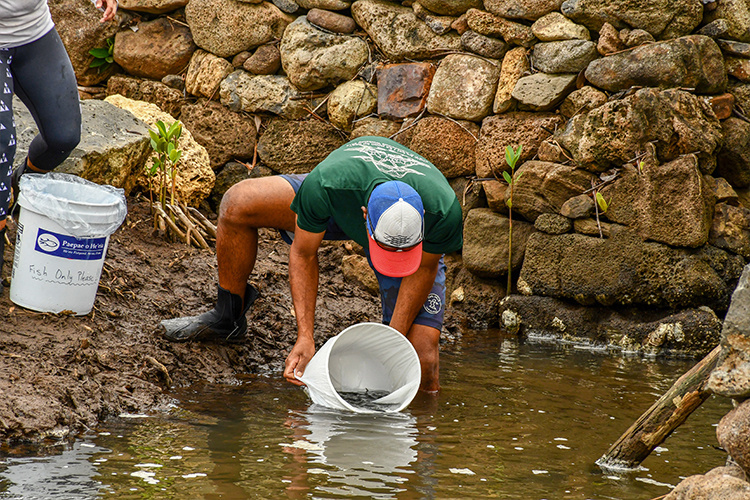
Our class will introduce you to restorative responses to climate change. Although climate change affects everyone, it especially harms Black, Indigenous, and low-income people. These groups have also led the efforts to combat climate change by protesting capitalist extraction of resources, building food sovereignty, and leading ecological restoration projects.
Our class centers Indigenous and Black perspectives on climate justice, especially ideas and practices that restore traditional, anticapitalist land and water stewardship, fishing, and farming. In addition to readings, you will gain interdisciplinary experiences through visits to the Smith College Museum of Art, the Botanic Garden, the Boutelle-Day Poetry Center, the Neilson Library’s Special Collections, and the MacLeish Field Station. We will sometimes have class outside, sitting on the grass, standing, and walking. Our course materials and discussions will help you generate ideas to write about.
- Instructor: Magdalena Zapedowska

